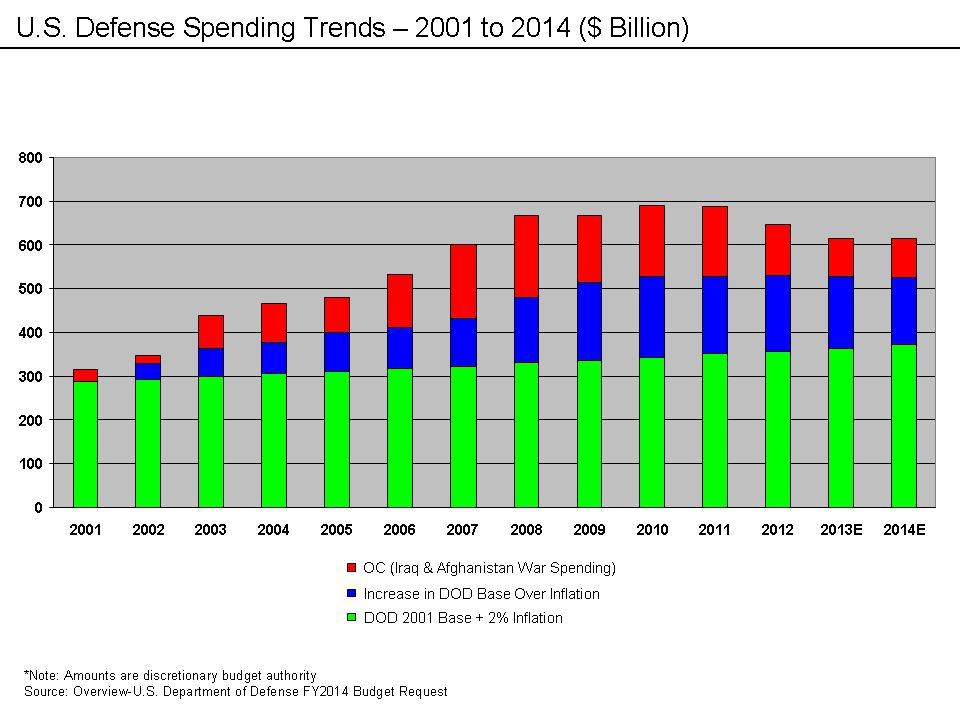When Spending More Can Save Money
< < Go Back
After the terrorist attacks on September 11, 2011, the United States’ $128 billion surplus was quickly overtaken by a recession, and new defense spending rose 50 percent from 2001 to 2004. By that year, the United States no longer had a surplus, but a $412 billion deficit.
As Diana Furchtgott-Roth, director of Economics21 at the Manhattan Institute, explains, the economy tumbled after the attacks:
– During the six months after September 11, employment dropped by 1.3 million people.
– Airlines especially suffered: American Airlines’ stock dropped 39 percent on September 17, while United Airlines’ stock fell 42 percent.
– The stock market had dropped 14 percent after the first week of trading after the attacks.
Part of the government’s new spending involved the creation of the Transportation Security Administration — an agency which has 55,600 full-time employees today (far higher than the 15,000 that were originally envisioned) and a $7 billion budget.
Furchtgott-Roth asks whether these measures are enough, especially in light of the rise of ISIS and other terrorist organizations. Despite these new and growing threats, American defense spending has been decreasing since its 2011 peak, and, according to the Congressional Budget Office, annual defense spending should continue to decline. While military spending was 4.7 percent of GDP in 2010, it is expected to fall to 2.7 percent of GDP in 2024.
Furchtgott-Roth argues that military spending needs to increase, not decrease. Growing threats around the world only make another attack on our soil more likely, and such an attack could devastate the economy. By increasing defense spending, she writes, the United States could prevent even greater economic costs that could come with a terrorist attack.
More From NCPA:




